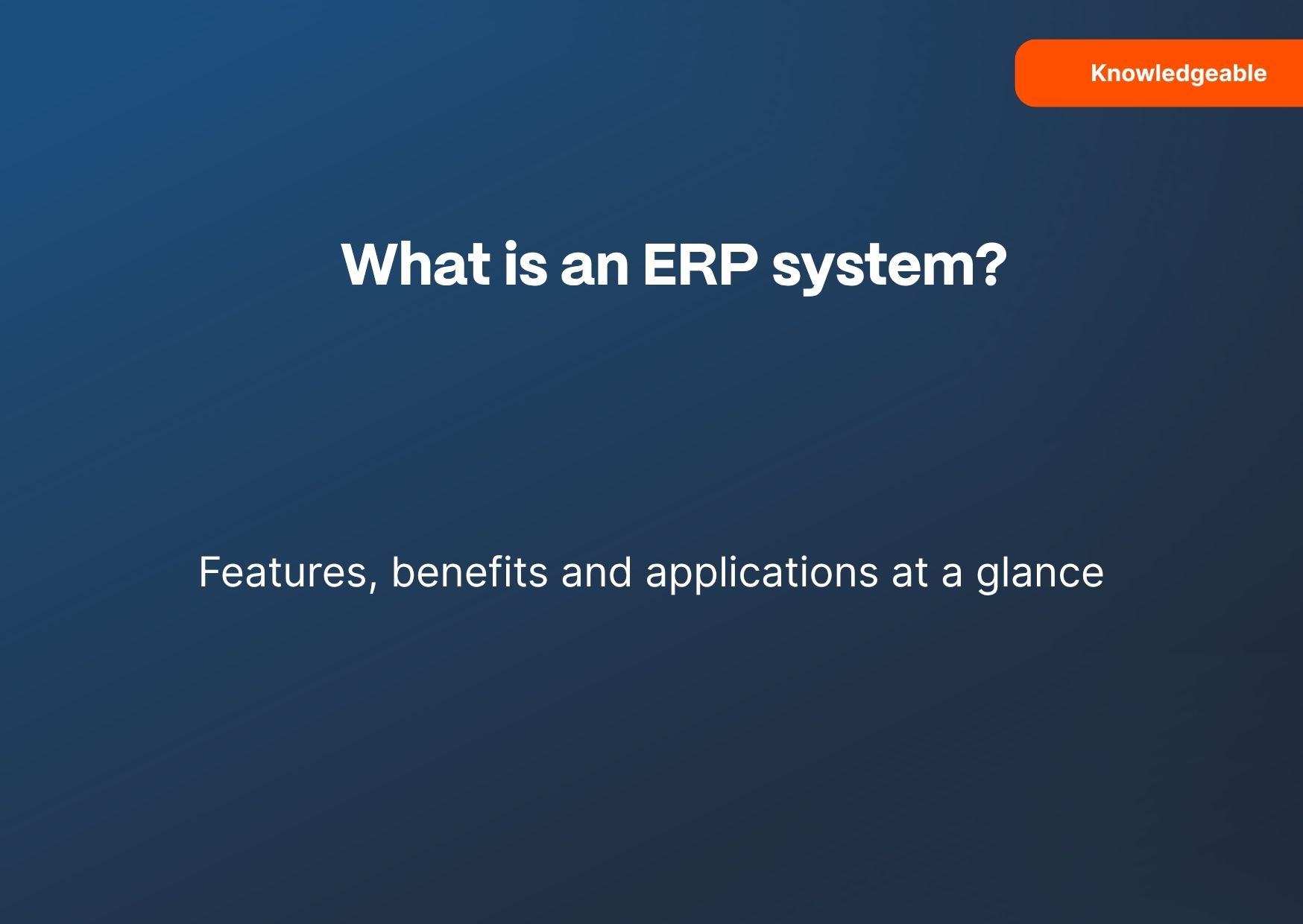
In an age of increasing digitization, complex supply chains and increasing customer requirements, one thing is becoming increasingly clear: Anyone who wants to efficiently control processes and access data across the company needs a ERP system not around. But what exactly is an ERP system? What are the benefits — and when is the right time to implement it?
In this article, you will get a comprehensive overview of the topic Enterprise Resource Planning (ERP) — compact, understandable and practical.
ERP stands for Enterprise Resource Planning, in German: corporate resource planning. A ERP system is an integrated software solution that maps all essential business processes of a company in a central application. These include:
By integrating these areas into one system, data can consistent, transparent and up to date be managed — across departmental boundaries.
An ERP system creates the technological basisto efficiently plan, execute and monitor company-wide processes. It is used to:
Especially in dynamic markets, an ERP system is a key success factor for agility, scalability and competitiveness.
A well-implemented ERP system has a number of advantages:
Not every company starts with an ERP system — but almost all reach the point at some point where it's no longer possible without it. Typical signs of this include:
If several of these points apply to your company, it is worthwhile evaluating a suitable ERP system.
The selection of an ERP system should be strategic — based on your goals, processes and planned business development. When making a decision, pay attention to:
An ERP system is the digital backbone of your company. It ensures Efficiency, visibility, and scalability, reduces operational risks and opens up strategic scope for action. Whether you want to grow, transform, or standardize, an ERP system is the right tool to achieve your goals securely and based on data.